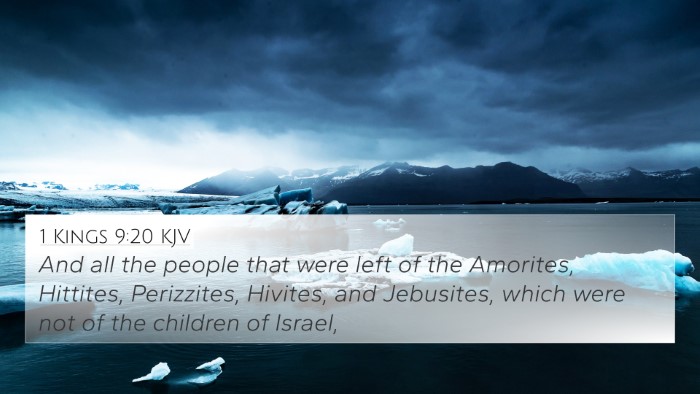Understanding Joshua 9:8
Verse: "And they said unto Joshua, We are thy servants. And Joshua said unto them, Who are ye? and from whence come ye?" (Joshua 9:8)
This verse depicts the moment when the Gibeonites approached Joshua and the Israelites, presenting themselves as servants. Their statement reveals their intent to deceive for the purpose of self-preservation. This interaction not only sets the stage for significant events in the narrative but also teaches profound lessons about discernment and the consequences of deception.
Commentary Insights
-
Matthew Henry's Commentary:
Henry highlights the cunning nature of the Gibeonites and their strategic move to appeal to Joshua's sense of duty. He points out that their humility in presenting themselves as servants was a tactic to secure safety from the Israelite conquests. This interaction exemplifies the theme of deception found throughout Scripture.
-
Albert Barnes' Commentary:
Barnes emphasizes the importance of Joshua's response, noting that it reflects a moment of caution and inquiry. His question, "Who are ye?" serves as a reminder of the need for vigilance against deception. This highlights a broader biblical theme where leaders must discern the motives and backgrounds of those who approach them.
-
Adam Clarke's Commentary:
Clarke examines the broader implications of this encounter, suggesting that the request for servitude signifies the deeper desire of nations to seek alliances or mercy from Israel. He notes that the Gibeonites' actions foreshadow future interactions between Israel and other nations, ultimately leading to complex relationships that would unfold in the land.
Bible Cross-References
- Genesis 34:30 - Discussion around deceptive tactics to gain favor.
- Exodus 23:32-33 - Warnings against forming covenants with foreign nations.
- Deuteronomy 7:1-2 - Instructions for dealing with conquered peoples.
- Joshua 9:14 - The Israelites’ failure to seek the Lord’s counsel.
- 2 Samuel 21:1 - Subsequent consequences of making treaties with Gibeon.
- 1 Kings 9:21 - The enduring presence and role of the Gibeonites in Israel.
- Ezekiel 14:9 - God's condemnation of false prophets and deceptive people.
Thematic Connections
This encounter between Joshua and the Gibeonites can be understood through various themes prevalent in the scriptures:
- Deception and Truth: The Gibeonites' deceit contrasts with the transparency expected in covenant relationships.
- Leadership and Vigilance: Joshua's role as a leader calls for discernment and wisdom in managing relations with outsiders.
- Covenant Faithfulness: The treaty made between the Israelites and the Gibeonites serves as a case study on the complexities of covenant relationships.
- Divine Guidance: The emphasis on seeking God’s counsel is indicative of Israel's reliance on divine wisdom in their decisions.
- Consequences of Decisions: The long-term ramifications of Joshua’s decisions reflect the broader biblical truth that every choice has consequences.
Inter-Biblical Dialogue
This verse not only stands alone but connects deeply with other biblical texts. The Gibeonites' strategy to deceive Israel finds parallels in various biblical narratives. For instance, the treachery displayed in Genesis 34 with Shechem and Dinah presents a similar tension of familial and national interests clashing with moral integrity.
Tools for Deeper Understanding
For those wishing to delve into a more detailed cross-reference study regarding Joshua 9:8, consider the following approaches:
- Utilize a Bible Concordance to find thematic and topical references.
- Apply a Bible Cross-Reference Guide to explore relationships between verses.
- Engage in Cross-Reference Bible Study methods to highlight connections across the Testaments.
- Examine a Bible Reference Resource for commentary perspectives.
- Look into Bible Chain References for structured thematic connections.
In summary, Joshua 9:8 serves as a pivotal moment in Israel's history, illuminating the blend of spiritual and political maneuvers in biblical narratives. Through the exploration of various commentaries, cross-references, and connected themes, readers are better equipped to understand and appreciate the richness of the Scripture, drawing valuable lessons for their lives today.










